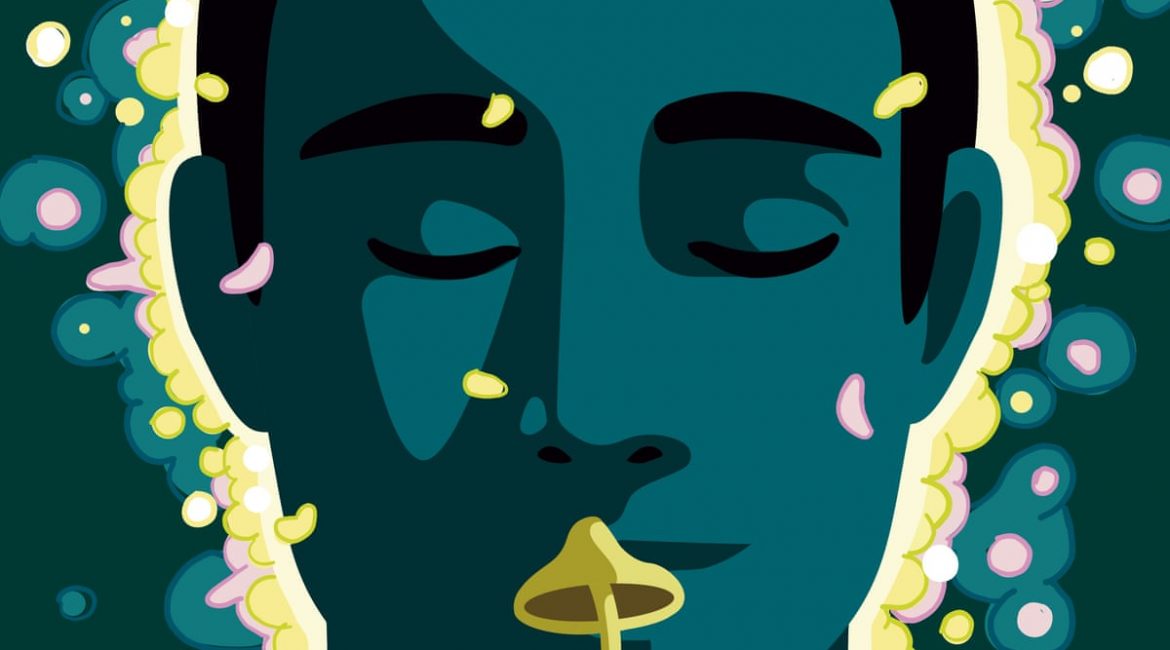The first time I heard the term microdosing was in 2018 while getting professional photos taken. The photographer, seemingly open for someone who I had just met, shared his technique for surviving daylong music festivals: microdosing LSD. At the time, I remember thinking how unusual that was. I had never tried psychedelics, nor did I care to. The thought of any kind of visual trip gave me more paranoia than it did presence. In fact, it was only a year ago that I had tried magic mushrooms for the first time—even then, it was a small dose.
The second time was in conversation with an addictions worker in 2019. He talked about the research and the potential for psychedelics to one day become a viable treatment option for addictions. For me, that’s when things really clicked.
Fast forward to today, here I am, writing articles for Mindful Mushroom–a company that’s focused on bringing the benefits of microdosing psilocybin to more people by making it easier and more accessible across Canada. Ironic, yes. The how and why I am here is a story in itself. My own microdosing experiences have ultimately changed how I think about psychedelics, but they’re also now helping me be part of the world in a much healthier way.
What is it, exactly?
Microdosing involves taking tiny amounts of psychedelics at a time—not to feel high, but just enough to feel something. Psilocybin microdoses usually contain about 0.1 mg of psilocybin. Other substances can be microdosed as well, such as LSD.
Microdosing psilocybin is not meant to be part of your daily show, but more like a special guest appearance to help amplify it. It is most effective when taken on a schedule with regular breaks to prevent tolerance build up. A common microdosing schedule is 2 to 3 times per week with two days between microdoses. There are plenty more schedules out there you can follow—some are unique to a person and what works best for them.
The nice thing about microdosing psilocybin is you can still go about your normal day with ease. For some people, such as myself, it can make their day feel easier emotionally or physically. It all depends on the person and their reason for microdosing in the first place.
Why are people talking about it?
One tiny dose of psilocybin packs a lot of power. The mental benefits people report experiencing range from higher creativity levels and more energy to enhanced focused and reduced anxiety or depression. Some people are even using it as an aid to wean themselves off an alcohol or drug addiction or anti-depressants.
While it may seem just a buzzword, psilocybin is likely around to stay. There is a growing bank of research backing claims about its benefits and as a potential treatment for some of our most prevalent mental health conditions. Many clinical trials are also underway—with some of them nearing completion. The caveat is a majority of them are placebo-controlled clinical trials using larger doses of psilocybin.
There is an exciting narrative at play for psilocybin regardless. In some ways, the COVID-19 pandemic is fueling it. One in five Canadians screened positive for symptoms of depression, anxiety or posttraumatic stress disorder in the context of pandemic. Some people are turning to microdosing psilocybin as a solution rather than resorting to antidepressants.
In fact, COMPASS—an organization dedicated to accelerating patient access to evidence-based innovation and mental health—is undertaking a clinical trial of psilocybin therapy in antidepressant-free and treatment-resistant depression. The outcome will help determine psilocybin’s therapeutic potential in post-COVID-19 clinical psychiatry. Phase 2b of the trial, which will be completed by the end of the year, will determine the safety, efficacy and optimal dose of psilocybin. If the results are positive, the trial will move into phase three.
More nations are also taking steps towards decriminalizing psilocybin, with Denver, Colorado the first city in the United States to take the first leap. Oakland, California appears to be following suite. Who knows—Vancouver, Canada may be next. As of June 2021, the city made its final submission seeking federal exemption to decriminalize simple drug possession, including psilocybin.
It is an exciting time to be alive as the world continues to explore the power of psychedelic plant medicines for mental health. Cliché to say? Perhaps. But we have already seen a major shift across Canada with cannabis legalization in 2018 and now psilocybin appears to be charting the same path.
In the months and years to come, I suspect there will be plenty more reasons why people are talking about psilocybin, especially as clinical trials near completion. Regardless, if you are thinking about microdosing psilocybin—it’s important to know what your reason is. It’s your guide to ultimately measuring how you are healing or improving with each dose. Chances are, you’ll also end up having a more meaningful experience.

